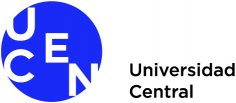
Miércoles 11 de Enero de 2023
Researcher, Institute for Research and Postgraduate Studies, FACSALUD

I carried out my primary and secondary education in Santiago in a public school; I used to travel between the downtown and the southern sector of the Capital. When I finished fourth grade, I wasn’t sure what to study; I was between mathematics, biology, and chemistry. Finally, I decided to study Medical Technology at the University of Chile. As a professional, I began working in the reproductive biology laboratory at the University of Chile. That lasted a couple of years; until I could take a Master's in Biological Sciences, majoring in Development Biology. This was possible thanks to a collaboration agreement between that laboratory and the University of Tarapacá. In parallel, the possibility of working in research management arose. I joined the Akredita team (an accreditation agency) and its health area. This topic was appealing to me, and I went for a Ph.D. that could provide me with management tools and skills in the laboratory. I then opted for a Ph.D. in Applied Cellular and Molecular Biology at La Frontera University.
In my career as a researcher, I have had a permanent line of work from the beginning. This is reproductive biology and spermatozoa. In my doctoral thesis, I searched for epigenetic alterations in horses that could be associated with reproductive problems. However, the tools acquired during my studies have helped me with management and research in other areas, such as Open Science, where I am part of the InES Ciencia Abierta UCEN team, from where I want to continue this path.
I find it attractive to delve into the stimuli, why this is done and how scientific activities and knowledge production are developed in Chile, the practices of those who exercise it from the academy, and how this is valued. These are the objectives of the InES Ciencia Abierta project, which I hope to validate with the necessary teaching and outreach activity at the University.
As for my horizons, I would like to continue with university and academic work associated with scientific research and promote and magnify open science at our university. One of the most critical aspects of research is the sense of teamwork that researchers can develop, but let’s not forget about those who train new generations of researchers as tutors or guides. These professionals must always be present. With them, we all must be responsible for our demands and those of the environments that affect mental health, aiming to preserve self-care measures so that we all can live more calmly.